Don’t Say That: Phrases to Avoid in Job Interviews
Interviews can be stressful, and it's easy to blunder. But if you want the job, here's what not to say.
Interviews are intimidating. The pressure of sitting across from a person — or a group of people — with the power to shape your future can make it hard to think of what to say, or how to say it well.
In most instances, a resume might get you in the door, but the interview will get you the job. It puts a lot of importance on what you say — and how you say it — in a very limited period of time.
The problem in nailing the job often isn’t qualifications. Rather, good candidates take themselves out of the running by expressing themselves inartfully when it counts the most.
Avoiding the following key phrases can take you from being just another applicant to a finalist for the job.
Set the Right Tone
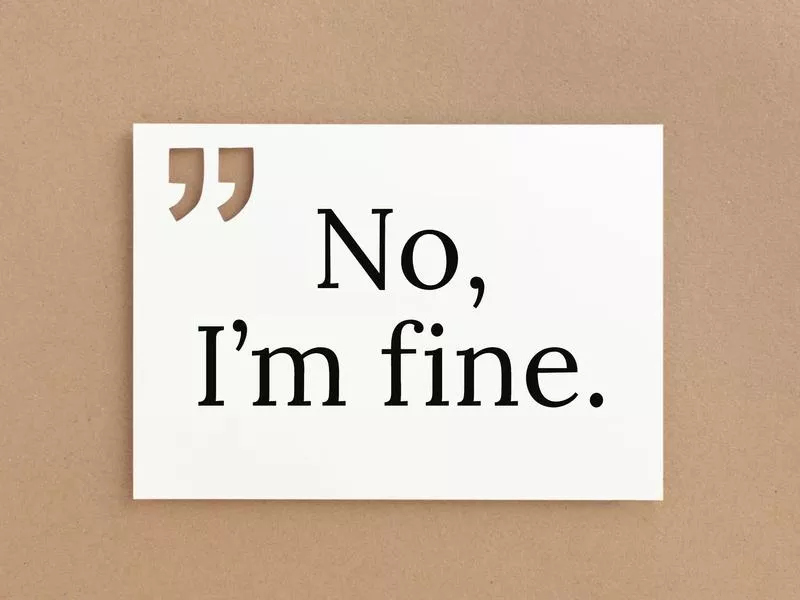
At the outset of most interviews, the interviewer might ask if you’d like anything to drink, like coffee or a glass of water. It’s very easy to respond with a casual phrase like, “I’m fine,” but doing so would be unprofessional.
While you by no means have to accept the offer, you should turn it down in a more formal manner. For example, try, “No, thank you. I’m all set for now.” It’s longer, but it’s more formal and more polite. It shows that you respect and appreciate the offer.
Just adding the “thank you” goes a long way toward changing the tone of your response. In a job interview, the more polite and respectful you sound, the more professional you appear.
Don’t Overdo It
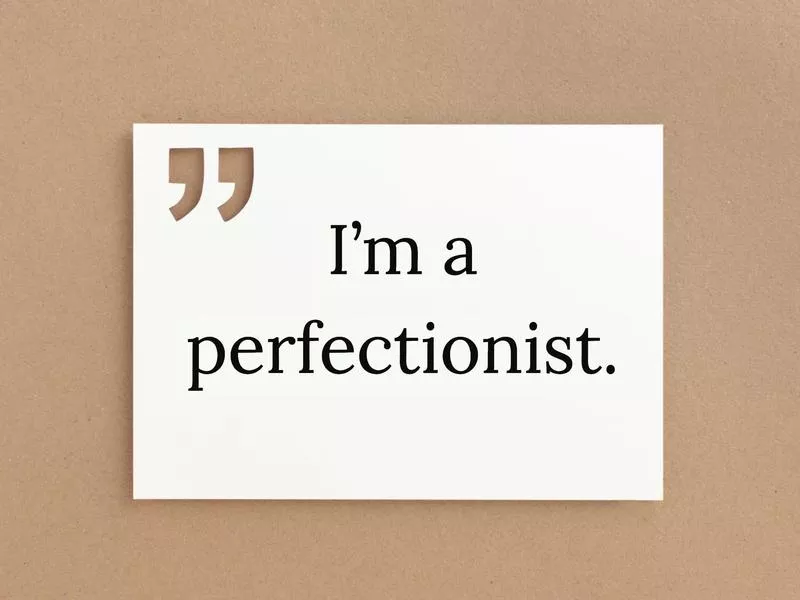
Those who utter this phrase believe it makes them seem impressive. What employer wouldn’t want an employee that does everything perfectly, or who at least strives toward it? On its face, it seems an innocuous phrase and perhaps even one that could catch an ear. But it carries several issues.
First, it’s just too common. Employers hear far too often that candidates are “perfectionists,” and it simply does nothing to make a person stand out. More importantly, employers know it’s not true. No employer has ever hired a perfect employee, so they know that anyone claiming to be perfect can never live up to it.
Most employers also don’t want a so-called perfectionist on their staff. They want someone who isn’t afraid to make mistakes. That’s how employees learn. They also don’t want someone who will get so bogged down in minor, ultimately unimportant details that they neglect their other tasks and sacrifice productivity.
Claiming to be a perfectionist can make one seem new to the job market, and new to interviewing. If you want to come off as a savvy worker willing to learn, you’ll have to admit to some flaws.
Careful Not to Seem Lazy
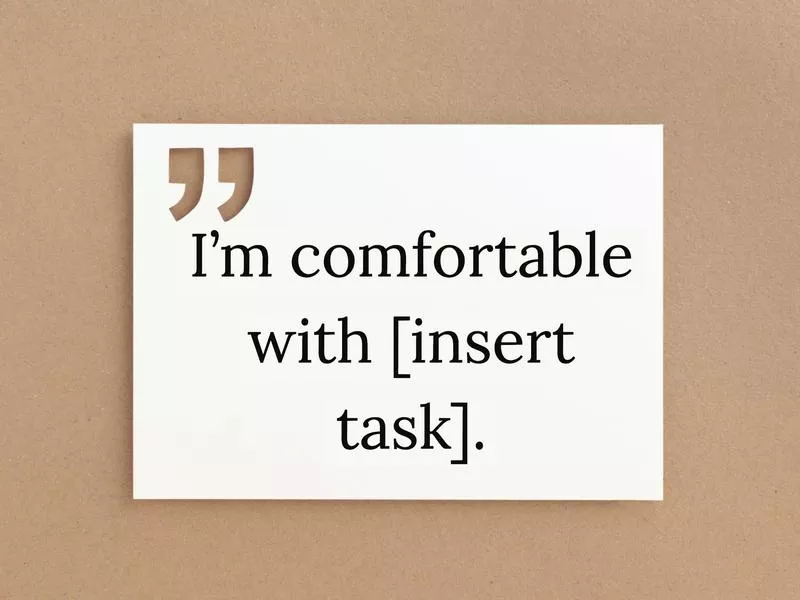
Comfort is like perfection: nice in theory, but hard on the interviewer’s ears. While a potential employer does want someone who is familiar with their potential responsibilities, they don’t want someone who will be too comfortable. “Comfortable” can be cause for concern.
Comfortable can make the interviewer think the candidate isn’t looking for a challenge or isn’t looking to grow in their job. It signals the person is looking to coast.
While you should express your ability to perform the job tasks, employers also want to hear that you’re looking for something that will take you out of your comfort zone and challenge you, at least a little bit.
Shooting Yourself in the Foot
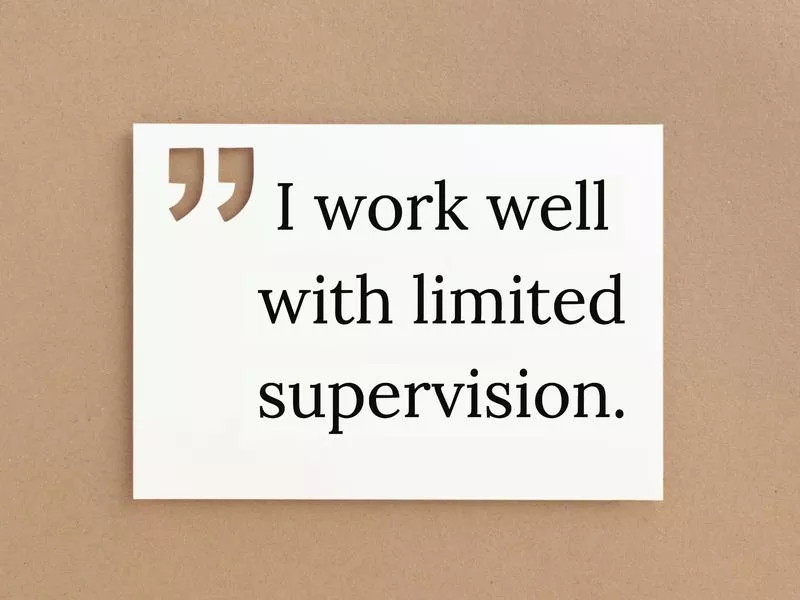
This is a tough one. On one hand, employers like it when they don’t have to micromanage an employee. However, telling an interviewer that you work well with limited supervision could make them think that’s the only kind of supervision you work well under.
Independence is nice, but you have to be able to take direction and, in most cases, you have to be able to work well as part of a team.
In almost any interview, the interviewer is looking for someone who will fit well with the team they already have in place. Let them know you can work on your own, but be sure you don’t come off as a lone wolf.
Offer Your Expertise
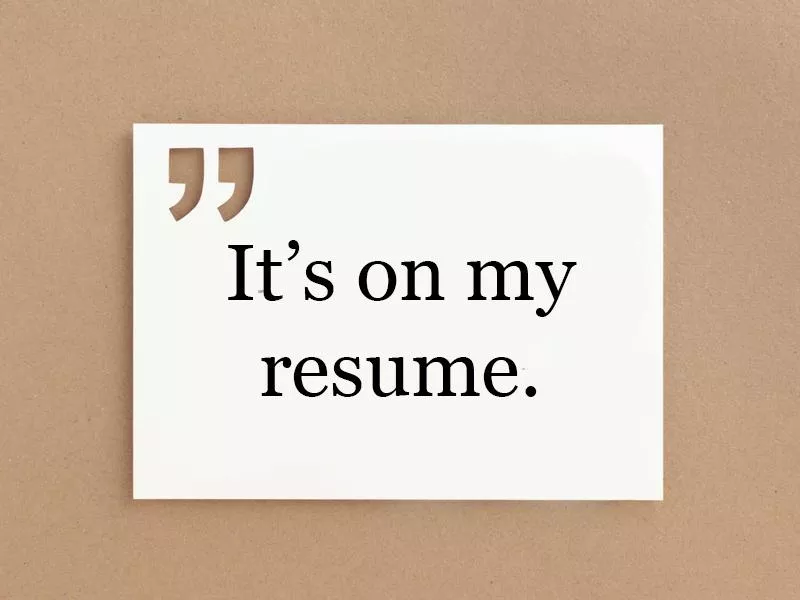
Of course, your experience is on your resume, but when an interviewer asks you about it, their reasons are twofold. The first, obviously, is to elaborate on your job experience. The second is to see how well you communicate.
How are your social skills? Can you face clients and articulate yourself, or are you better off as back-office staff?
An interviewer wants to hear what you have to say beyond the written word, so if they ask you about a particular job or skill, it’s your time to shine.
Don’t Let Them See You Sweat
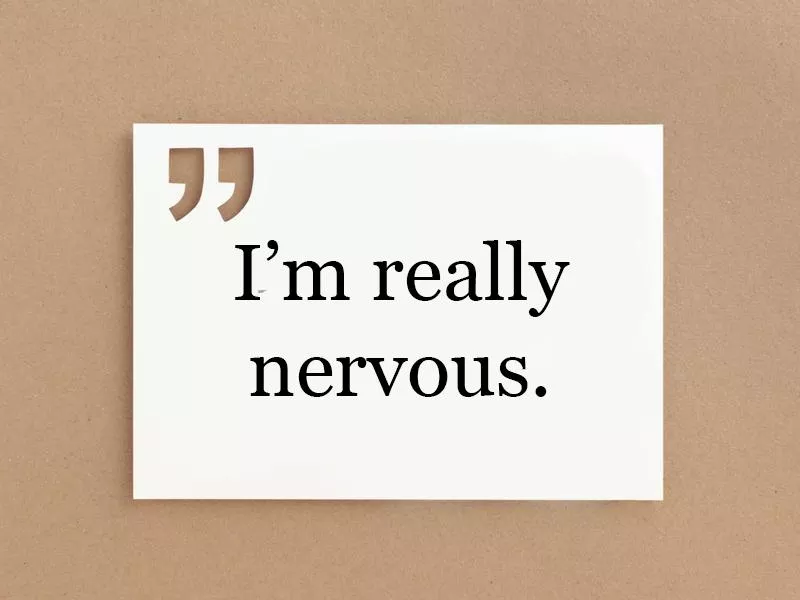
Here’s a little secret — everybody is nervous in interviews. It’s the nature of the beast.
In any interview, first impressions count. A confident candidate has a better likelihood of getting their foot in the door (or at least a second interview). Also, chances are, the job you’re interviewing for requires a certain level of on-the-spot decision-making, and an interviewer will want to see how sure you are in your answers.
Saying you’re nervous will not necessarily make you less anxious; in fact, it can give you more jitters and throw your interviewer off. Again, interviews can be nerve-wracking, and it’s OK to feel that way. Just don’t announce it. You’re probably hiding it better than you think.
Fight Filler Words
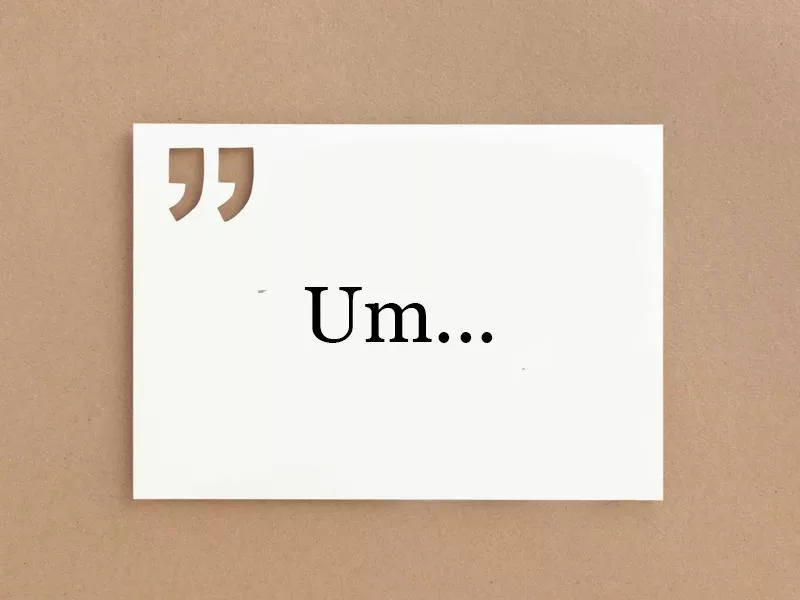
Filling up silent space with words like “um” is something we all do and something we’re not necessarily aware we do. However, paying closer attention to it will only benefit you in an interview.
There is a limited amount of time you have to make the proper impression, so speak eloquently and thoughtfully in the moments you have. You can take pause, but think about how you’ll say something before saying it. Practicing a bit before you go in can’t hurt, either .
Be Like George Washington
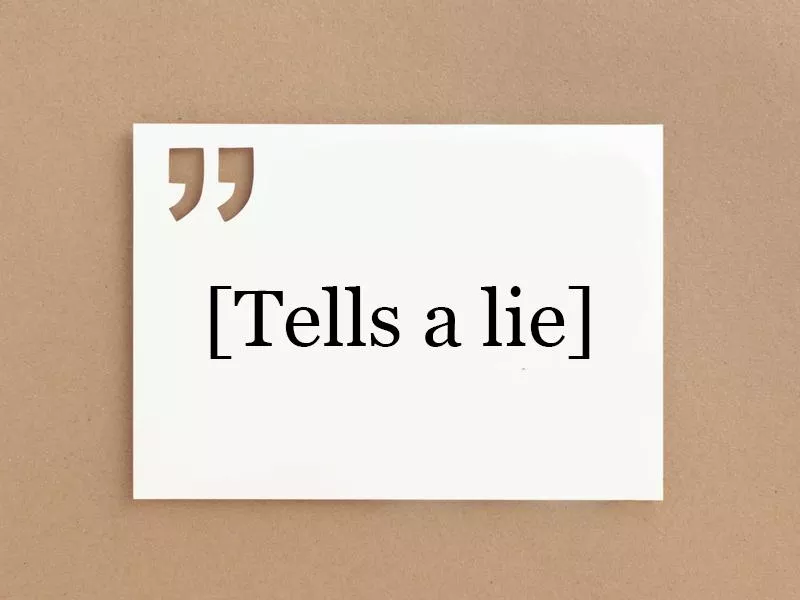
We get it — you want the job and will do anything to get it. What can it hurt to tell a little white lie?
Don’t say you can do something that you can’t really do because it might come back to haunt you later. Perhaps the interviewer will ask you to come in for a trial run on the job; if you can’t prove yourself by doing what you say you can, you’ll miss out on a great opportunity.
It’s OK not to have experience in all aspects of a job, even if you held that position somewhere else — every company has different processes for how they do things.
The best thing you can do during an interview is pivot to a process you do know that’s somewhat related to what the interviewer is asking of you and let them know you’re willing to learn.
Don’t Bad Mouth Your Boss (or Your Current Job)
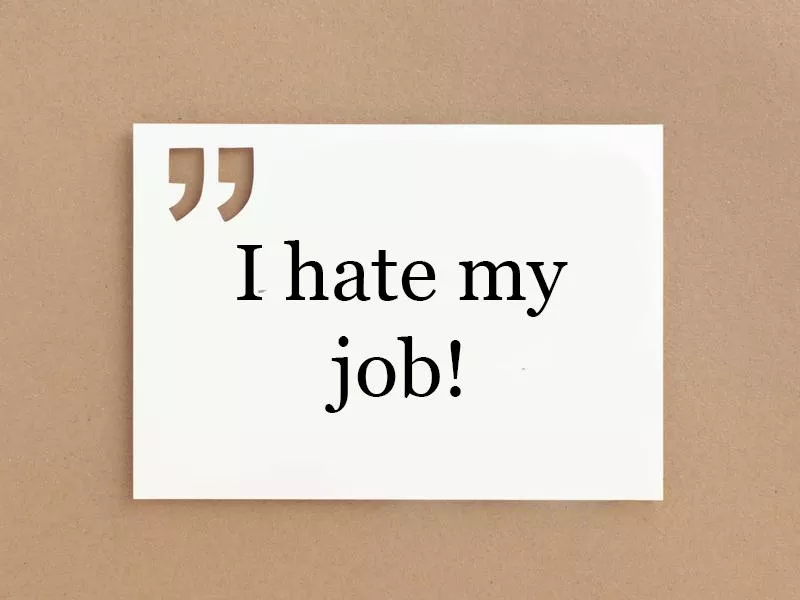
Sure, you probably wouldn’t be interviewing if your current job was satisfactory; that’s the unspoken rule of interviewing. But there’s no reason to bad mouth your company, your boss or your position.
Doing so doesn’t make you look very mature; furthermore, companies loves to see loyalty in employees, even if things aren’t going the way they should. If you’re saying these things about your current employer, what’s to stop you from doing it to your future employer?
When an interviewer asks why you’re leaving, let them know that you’re simply ready to branch out and challenge yourself, learn more or expand your current skillset.
Speak Plainly
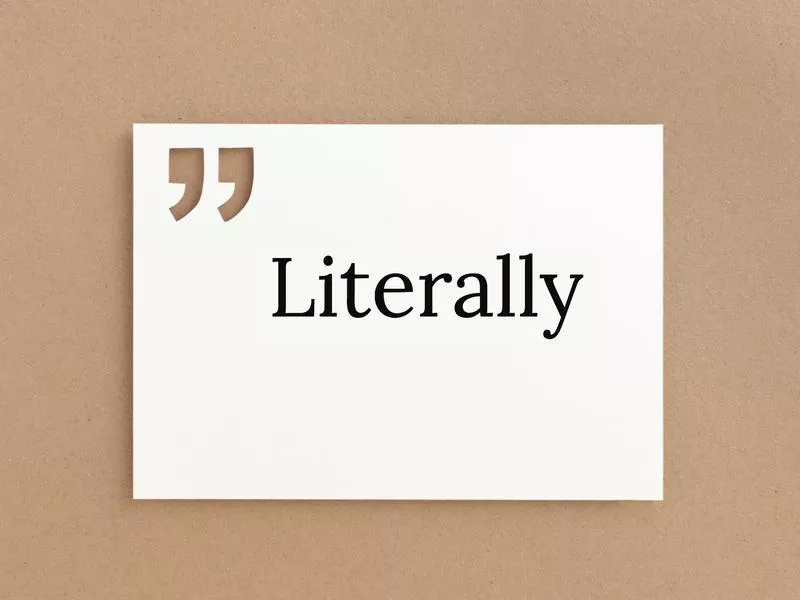
This word should be eliminated from almost all professional conversation, and particularly from your interview vocabulary. Unless you’re describing an otherwise metaphoric or hyperbolic situation that actually happened to you, there’s almost never a reason to use the word “literally.” And in most interviews, there will not be a reason to tell such an outlandish tale.
It’s an unnecessary and mostly meaningless modifier. When interviewing, you should avoid hyperbole and metaphor. Speak plainly and honestly. In other words, be literal. Your interviewer will assume you are, and there’s no need to confirm that you are by using the word.
Chat Up Your Actual Interests
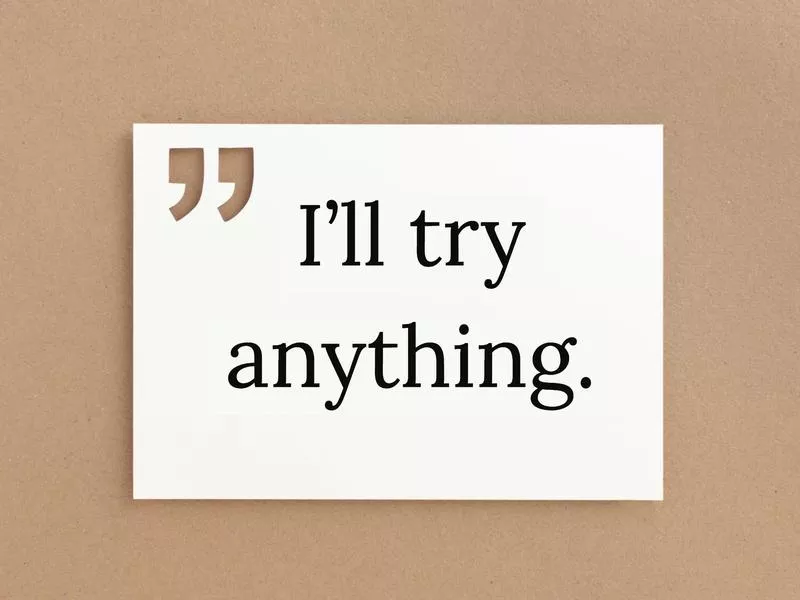
Like the preceding phrase, this one can be tough to carry off successfully.
It’s something people want to say, particularly when interviewing for a job they aren’t familiar with. A willingness to try new things is perfectly fine, and has merits. It can let employers know that you aren’t afraid to do whatever they require.
However, it also can make you seem unfocused, as if you’re just applying to jobs for the sake of finding anything at all, instead of finding something you can excel at.
It’s certainly true that you might not know how good you’ll be at a job until you try it, but you should be able to give a few reasons why you think you’ll do well with whatever new task the job will present to you.
Don’t Seem Too Eager to Please
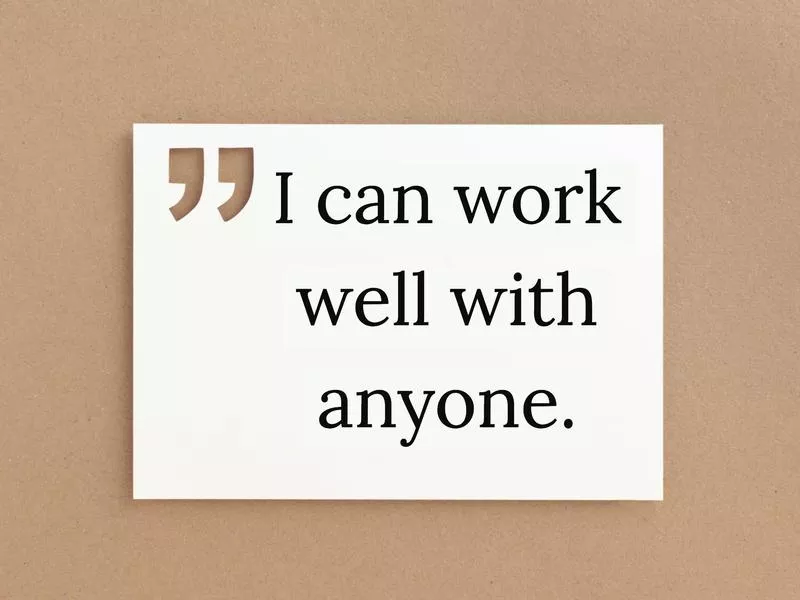
Like claiming to be a perfectionist, this one can make you seem dishonest. While employers, of course, want to know that you’ll work well with their existing team members, they also know that sometimes personalities clash. No one likes everyone, and no one gets along with everyone. Just be honest about that.
Tell your interviewer what kind of person you work best with. That way, they’ll know if you’ll be a good fit before it’s too late for all parties.
Working with people you aren’t comfortable around will negatively affect your productivity and that of your potential colleagues. More likely than not, it won’t be long before you’re back on the employment hunt.
This Should Be Obvious
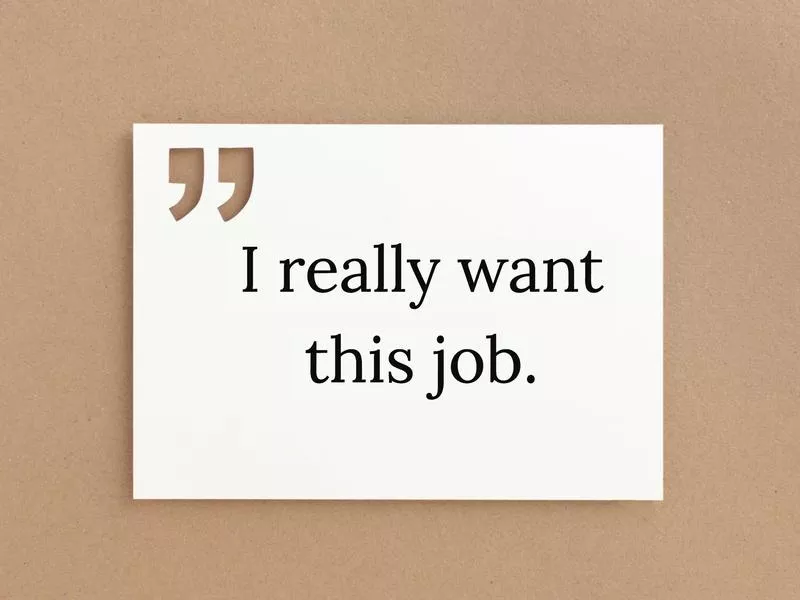
Enthusiasm is a good thing in interviews, but it’s best to not express it so bluntly. You’ve taken the time out of your day to prepare for and do the interview, so you should want the job. What’s more, the interviewer will assume you’re there because you want the job. There’s no need to tell him or her so directly that you want it.
Instead, show your enthusiasm by going over your credentials thoroughly, by relating your prior experience to the position you’re interviewing for, and by asking questions about the position and about the company. Your interest level will tell the interviewer how much you want the job.
Don’t Confuse Priorities
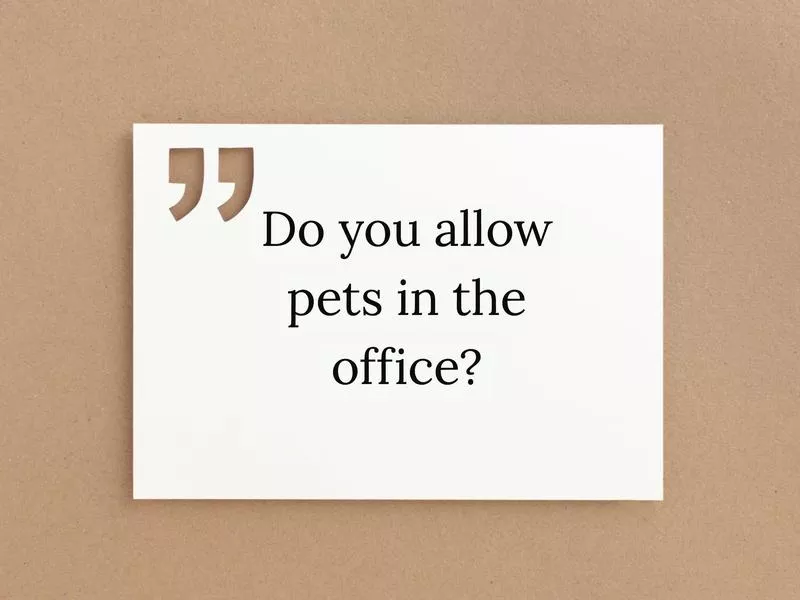
Many workplaces these days are pet friendly. Most at least allow dogs in the office. However, this is just an unnecessary question.
Unless you have a service animal, you probably don’t need to bring your pet to work. In most cases, this isn’t a priority and can make you come off as odd.
Your ability to perform the duties of the job is what matters most. If you get the job, then you’ll eventually find out whether or not you can bring your dog in with you.
Keep It Professional
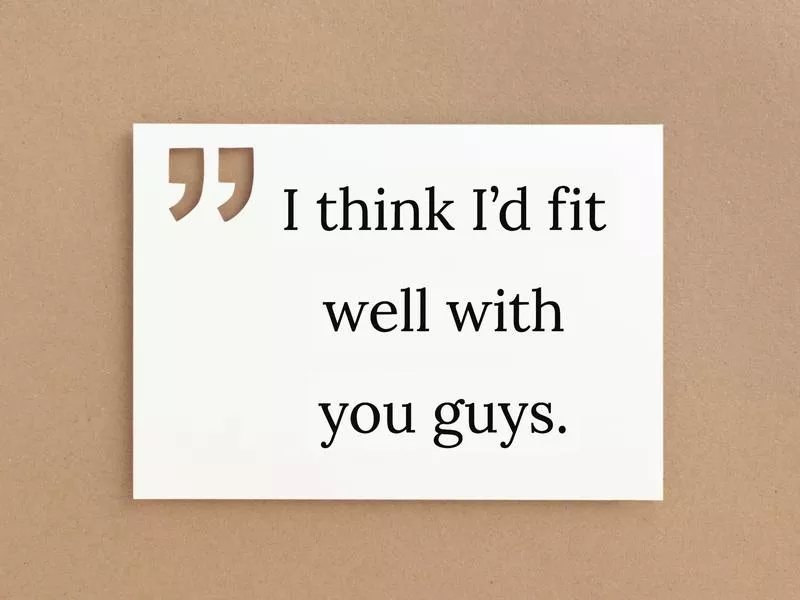
The specific problem in this phrase is the “you guys.”
Informality is inappropriate in an interview setting. You aren’t talking to people you know. You’re talking to people you need to impress, people who are judging every word you say.
You might get a chance to befriend them later on, but in that initial meeting, you need to recognize how words can overstep boundaries.
Companies are looking to hire professionals, not good buddies. Keep the language you use in line with that idea.
Don’t Seem Desperate
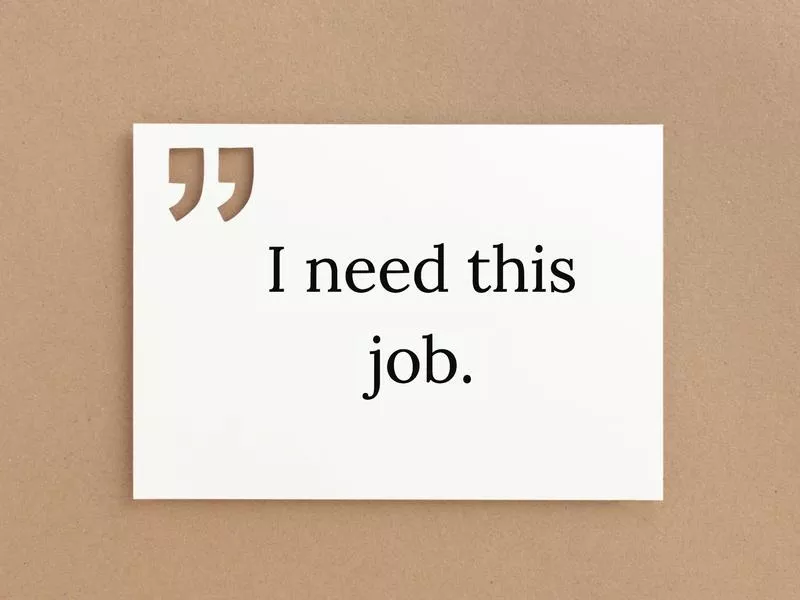
Most people have, for one reason or another, interviewed for a position not because they were interested in it, but because they simply needed a job. As with the previous entry on this list, whether or not the statement is true, it’s best to leave this one on the sidelines.
Desperation is an unattractive quality. In business as in relationships, it can turn the other party off. Let your credentials and qualities do the talking, so to speak. Make it obvious that you’re the best candidate, not the neediest.
Don’t Be Clueless
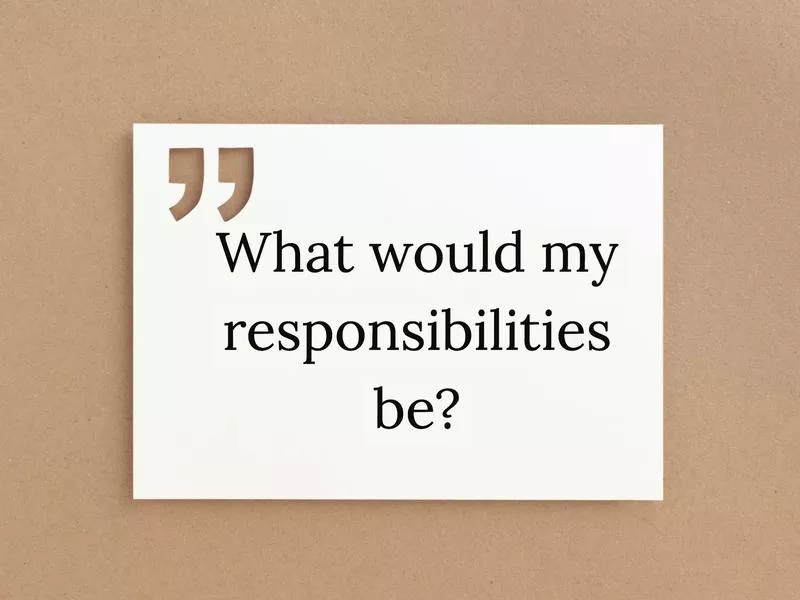
You won’t be expected to know everything about the position you’re interviewing for, but you should have a basic idea. You should certainly at least be aware or the basic job responsibilities and requirements. You should be interviewing because you think you’d be a good fit for the position.
If you show up to the interview without any idea of what the job is you’ll appear uninterested and the interviewer will begin to doubt your candidacy. Know what skills you’ll need and what you’ll need to do. You can fill in the more specific details during the interview.
Be Specific
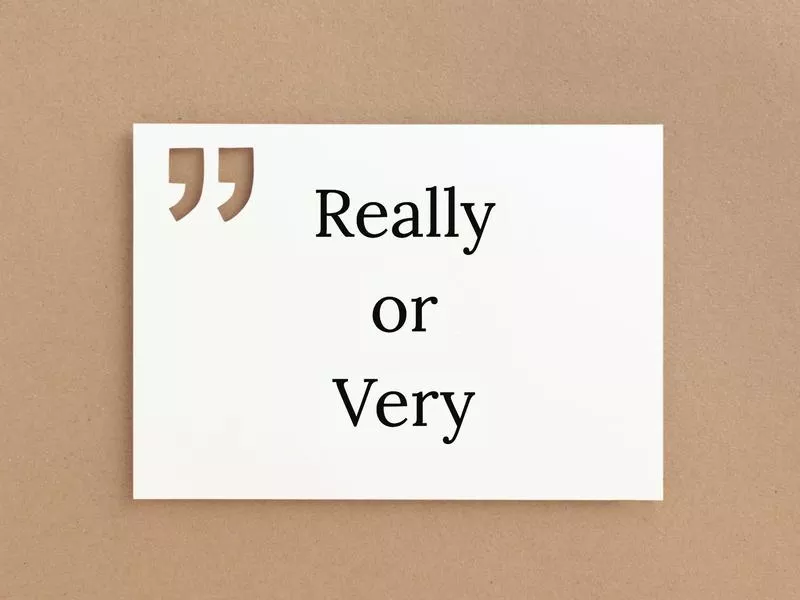
Like “literally,” these are non-specific adjectives that have no place in business conversation. In interviews, they can be actively harmful.
As modifiers, they don’t tell the person you’re speaking to anything more about whatever you happen to be describing. In an interview setting, you want to be as accurate, descriptive and informative as possible.
For example, instead of saying, “I’m a very good writer,” try saying something like, “I’ve developed strong writing skills thanks to my experience in journalism.”
The phrasing in the second sentence is more professional, and the detail will make you stand out.
Show Ambition Not Ambivalence
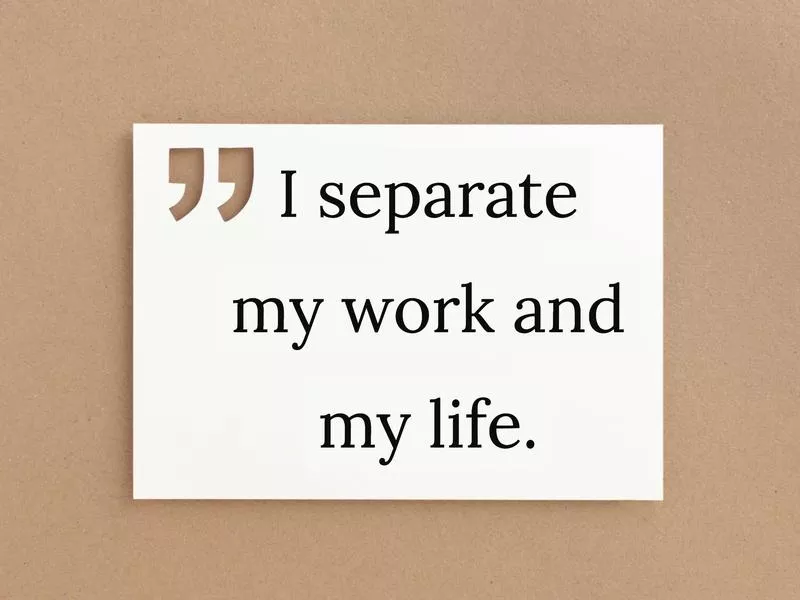
While your work doesn’t have to be your life, you need to recognize that it will, unavoidably, be a big part of your life. Telling an interviewer that you like to keep your work and your life separate, or that you like to strike a balance between your work and your life, can make you seem unwilling to work hard. You’ll appear to lack passion.
While no employer expects an employee to go the extra mile every time, they’ll want to know that you’re at least willing to do so. Companies want to hire someone who’s willing to make room in their life for their work, and who’s willing to be flexible with the amount of room they give it. They want someone who won’t be demoralized if they have to put in extra time or effort.
Be willing to sacrifice for the job you want.
Emphasize Specific Skills
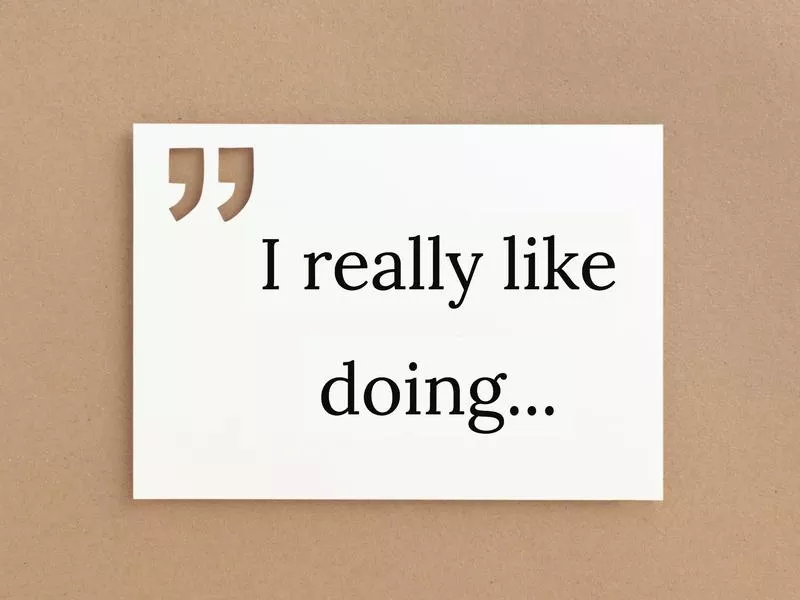
When asked why you want the job you’re applying for, don’t start off by talking about what you like doing. You can like something and still be terrible at it.
“Like” is a weak word in general, and won’t bring the interviewer’s attention to any of the words that follow. Instead, tell them what you excel at and why you excel at it.
Tell them how that thing can contribute to success, both for yourself and your potential employer. Whatever you “like” won’t make you the asset the company is looking for. What you’re exceptional at will.
Don’t Ask About Money
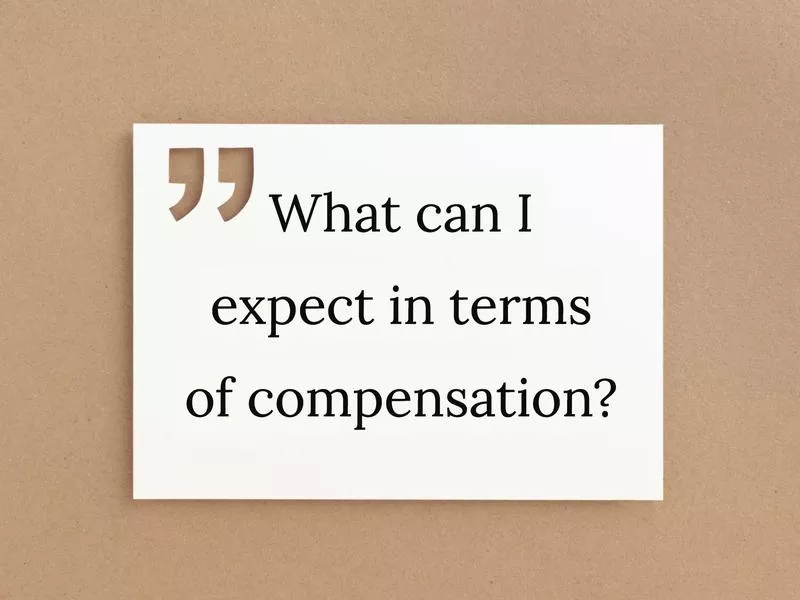
No matter what form it takes, any question about compensation during an initial interview is unprofessional. The interview is a chance for you and your potential employer to get to know each other, and to see if the relationship would be a good fit.
Asking about compensation is presumptive in the worst way. It can give the impression of overconfidence, and can make it seem as though you only care about the money.
While salary is important, employers don’t want to hire someone who’s only going to be there for a paycheck. They want passion and drive, and they want someone who will show up because they want to, not because they’re paid to.
Or Scheduling
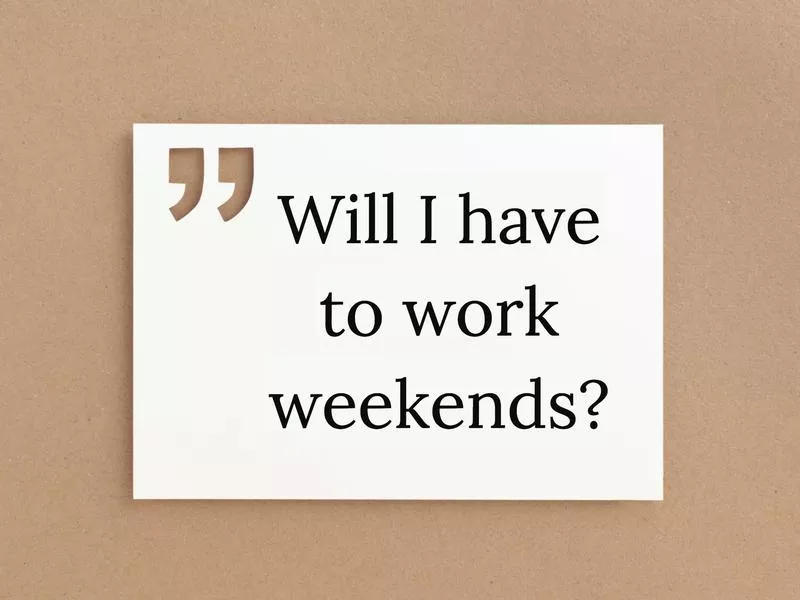
Like salary, schedule is something to be worked out if you move on to the next stage of the hiring process. Asking about it during the first interview leaves the impression that you’re unwilling to work weekends if asked.
While many jobs run Monday through Friday, many also require at least occasional weekend hours. Make them want you for the job before putting restrictions on your availability
Unless schedule conflicts would preclude you from taking the job, avoid asking about hours.
Leave Small Stuff for Later
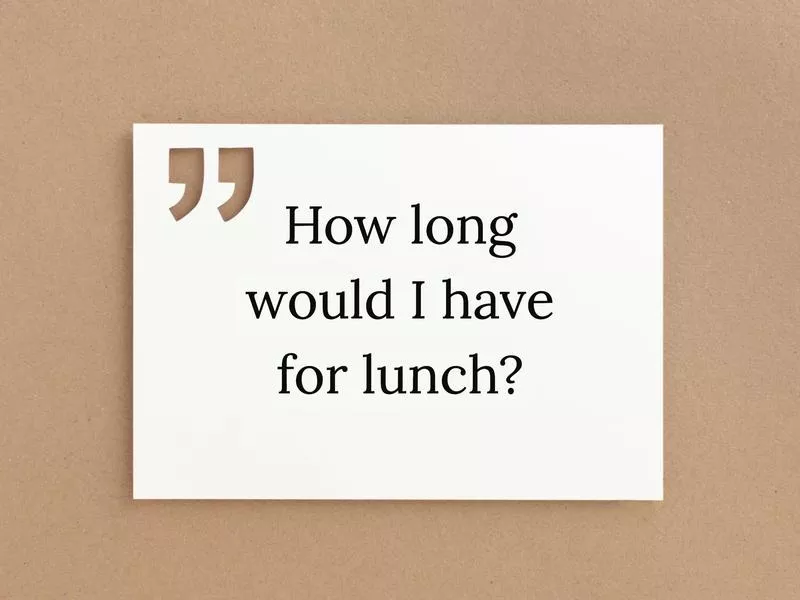
Like asking about benefits or salary, this question normally isn’t appropriate for an initial interview.
When you first sit down with a potential employer, the purpose of the conversion should be getting to know each other. Employment details can be worked out further down the road. You won’t be hired for your interest in breaks, lunch or otherwise, and you shouldn’t want the job because of the breaks that may or may not come with it.
This applies to questions about vacation days and sick days as well. Unless the interviewer brings them up, leave inquiries about the position but not strictly related to your qualifications for the job for the next stage of the hiring process.
Don’t Be Bland
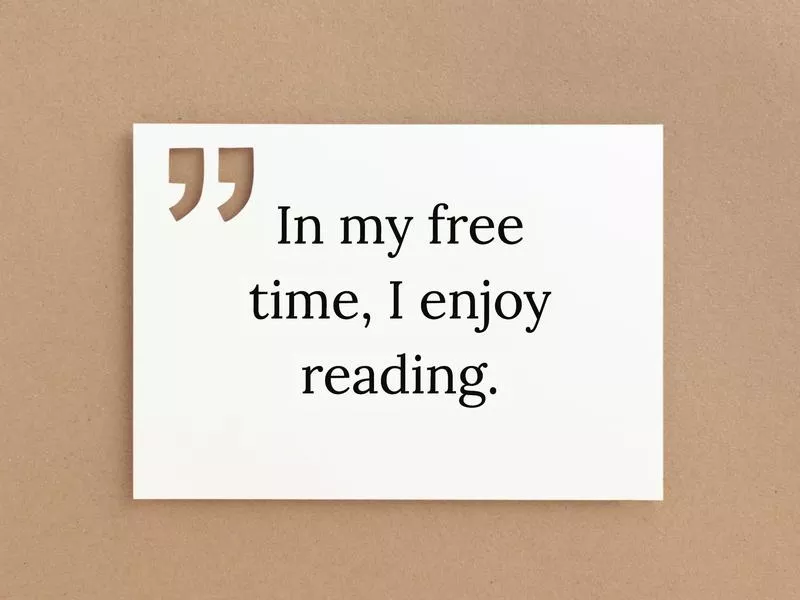
In most interviews, the interviewer will ask you about the things you like to do outside of work. Employers like to know that candidates aren’t one-dimensional. A well-rounded person generally makes for a better addition to a company. They bring a more diverse set of skills and a more refined way of thinking.
Reading is just an example of an outside activity. While it’s a fine activity, try to be more specific. What kind of books do you enjoy most? What are your favorite movies or TV shows? Where do you like to hike?
Details are interesting, and can help you form a connection with the person interviewing you.
Don’t Be Negative
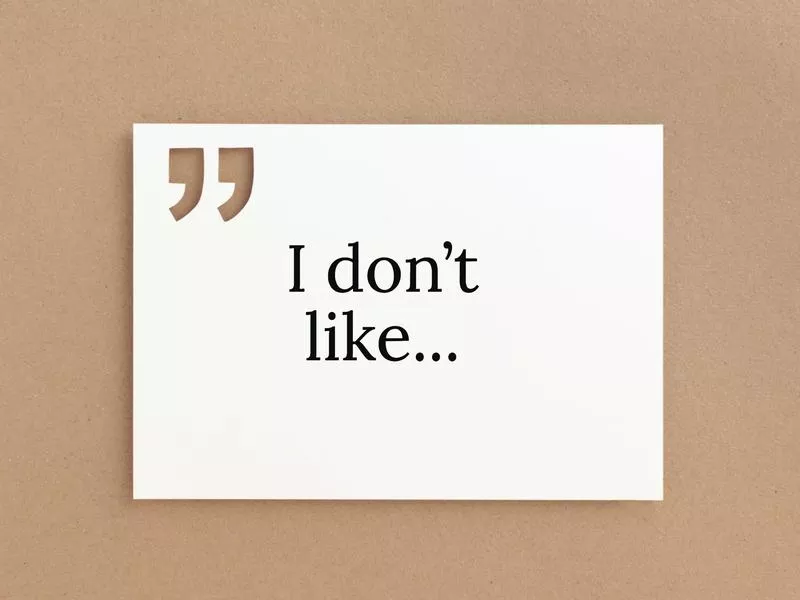
Whether you’re talking about job responsibilities or about things you enjoy doing in your spare time, don’t go negative.
In regard to aspects of the job, you don’t want to sound unwilling to perform the tasks that will be asked of you. Everyone has to do things they don’t like at times. You don’t have to like every part of your work, but you do have to grin and bear the less savory bits.
Negativity in your words will breed negativity in the way the interviewer remembers you. That 20-30 minute session is all the time you have to make yourself stand out from other candidates. Make sure you stand out for positive reasons.
Don’t Be Late
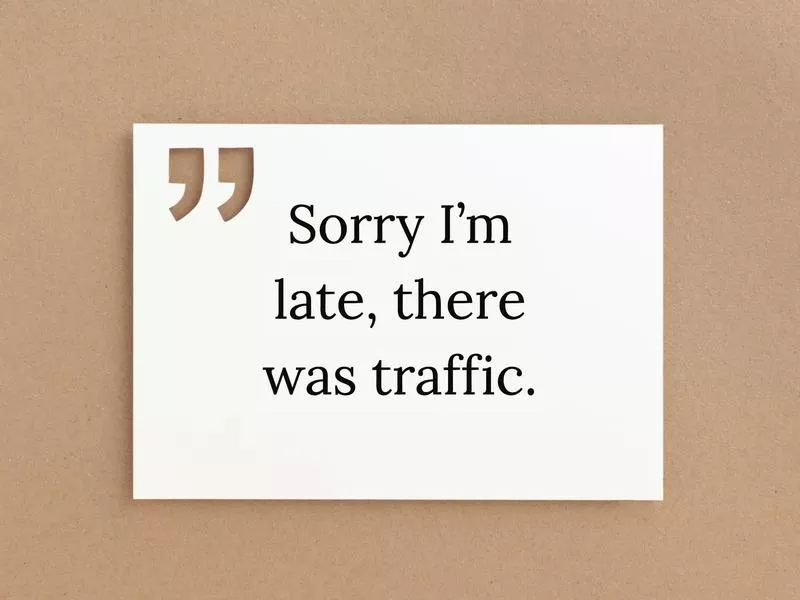
One of the worst things you can do is show up late to an interview. You will immediately seem irresponsible and unreliable, and you’ll start off the interview with a huge hill to climb. Stuff happens. Traffic happens. You can’t predict everything, but you can try.
Generally, a good rule of thumb is to leave for the interview at a time that will allow you to get there about 15 minutes early. At worst, you’ll be there 15 minutes early, and that’s not a bad thing. It’ll make you seem eager and excited. That 15 minute cushion is usually enough to account for any unexpected obstacles, such as traffic, and still allow you to arrive on time.
If you are going to be late and have no way of avoiding it, call the interviewer before the set time for the interview and let them know. They’ll appreciate the heads up and will be more understanding.
Keep It Formal
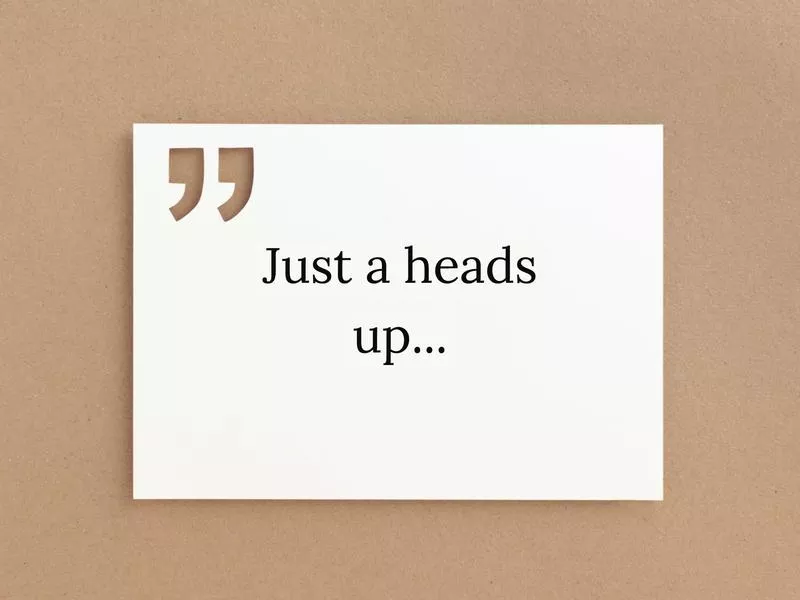
Now, I realize I just used the phrase “heads up” in the previous section, so this may seem a bit hypocritical. However, this isn’t an interview.
You might have something you need the interviewer to know, but there are better ways to do that. Saying, “I need to let you know…”, or, “I should inform you that…” has a more educated sound to it.
Whether or not it’s true, a person who overuses informal language will always sound less educated than a person who understands when formal language is called for.
Don’t Get Too Personal
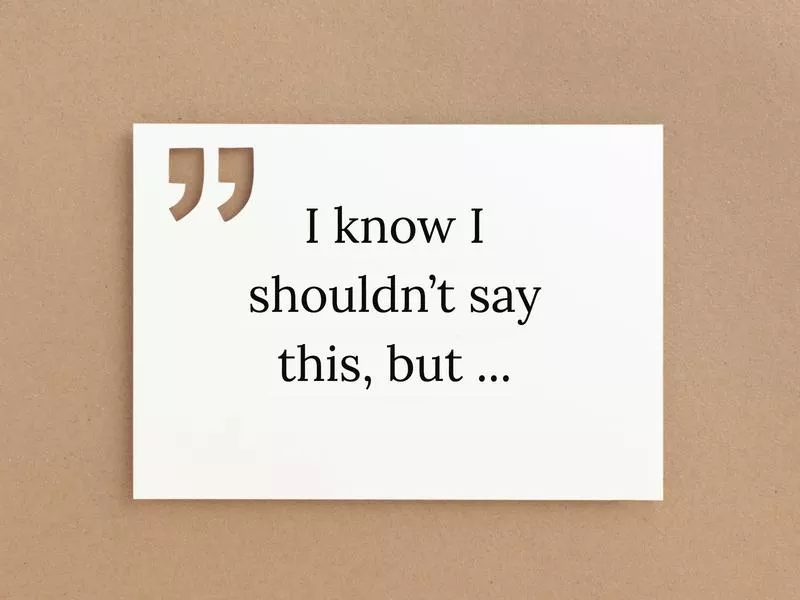
While it’s sometimes appropriate and even expected to discuss your personal life in an interview, you don’t want to get too personal.
You’ll be talking to someone you’ll have just met, and very personal details could make that person feel uncomfortable. If the detail could impact your work in some way, then you should disclose the information.
Otherwise, try to keep things light and surface-level. Interviews are like first dates; you don’t want to dive in too quickly or come on too strong.
The Kiss of Death
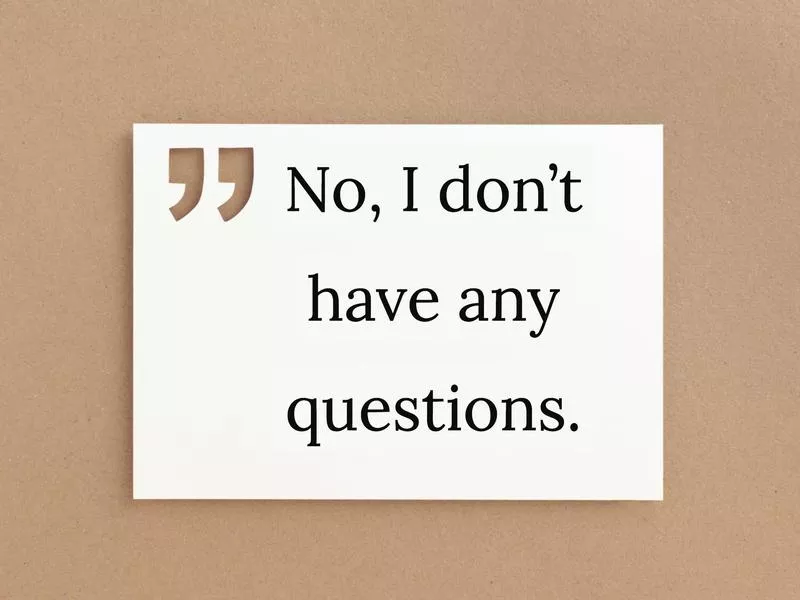
At the end of most interviews, managers typically give the interviewee a chance to ask some questions of their own. It’s best to have some ready to go.
Even if the interview didn’t leave you with any questions, you should ask something about the company itself. It’ll make you seem interested and engaged. The interviewer will know you took the time to do your homework and look into the company beforehand. Saying you have no questions will make it appear as if you don’t want to learn about the job or the company, or worse, are an incurious person.
Asking questions, even just one, will make you more memorable. Asking none will make you fade.
Always Send a Follow-Up Email
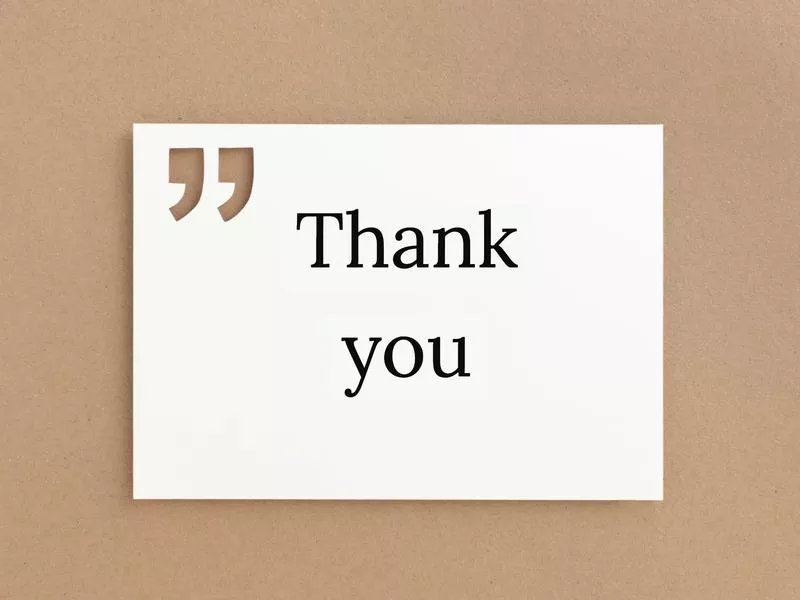
This one isn’t a phrase to avoid — but one to make sure to say. It’s good advice and a good way to end this list. The first thing you should do when you get home from an interview, assuming you have the interviewer’s email address, is to send a little thank you note.
It doesn’t have to be anything long-winded or complicated. It can just be a few lines expressing your gratitude for the chance to interview and your appreciation of the interviewer’s time.
You can also use it as a final opportunity to highlight one or two of your qualities or why you’d be a good fit for the position, but don’t spend more than a sentence or two on that.
A thank-you email will help you leave one final good impression. More important, it’s simply the polite thing to do.